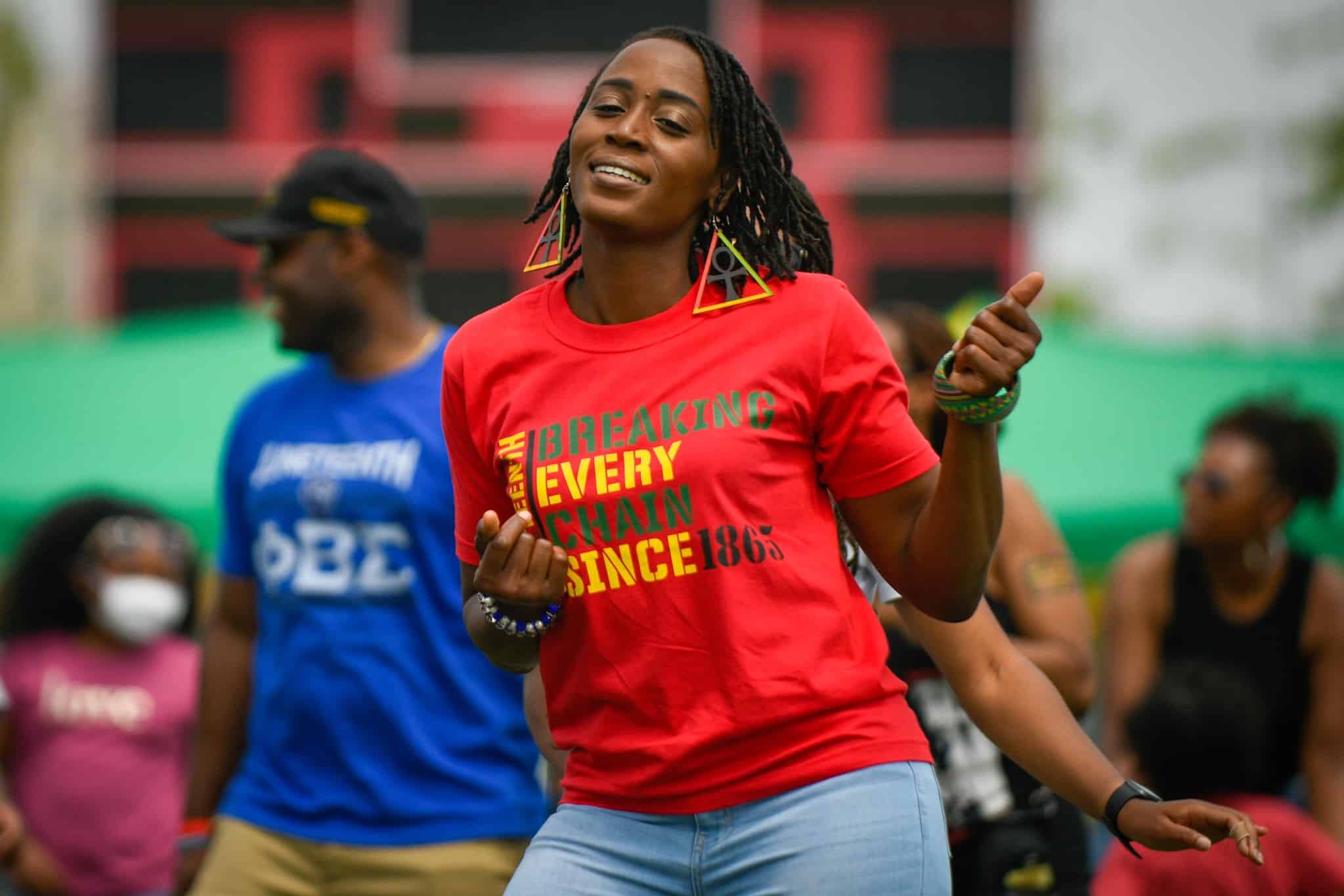Juneteenth 2022 and That Damned Ice Cream

by Safiya Simmons
I was aghast when I heard the news: Walmart was selling a Juneteenth-flavored ice cream in its stores. Moreover, the company had trademarked the holiday as part of its marketing strategy.
After being raked over the social-media coals, the corporation issued an apology for the ice cream, but the sting remained. Yet again, white America had pulled a Christopher Columbus: co-opting an established idea—in this case, the holiday Juneteenth—for its own economic purposes.
Juneteenth isn’t simply the latest holiday on the calendar and a day off from work. It commemorates the day, in 1865, enslaved Blacks in Galveston, Texas, were notified that the Civil War had ended and they were free. There’s gravitas and heaviness woven into the fabric of that day; there’s the responsibility and a sense of community woven into the fabric of that day.
What Emancipation Day isn’t is a commercial opportunity for the epitome of white capitalism, Walmart, to profit from. Sadly, they weren’t alone in their efforts to capitalize on this sacred day. From decorations on Amazon to church fan-like mementos, it seems every bastion of white capitalism was rushing to cash in on the new federal holiday.
Beyond outrage, there remains the question: What’s next? These businesses are selling Juneteenth-themed items under the guise of helping Black people celebrate, but then what? Are they donating any of the proceeds to organizations still fighting for the freedom of Black folks? Because we aren’t free until we’re all free—and there’s so very far to go.
Black people are continually persecuted and murdered because of white supremacy. We’ve learned, through countless tragedies, that walking home and shopping for groceries are both offenses when Black people do them, for which the penalty is death. The same year the last enslaved Blacks learned they were free, the black codes––which restricted Black Americans to low-wage jobs, banned voting, denied educational access, and made it unlawful for Black people to gather in large groups––were instituted, paving the way for today’s discriminatory work practices. These practices still relegate many of us to low-wage jobs. And many of us who decide to go to college to advance our careers end up saddled with insurmountable student loan debt.
The reality is that we can’t pull ourselves up by our bootstraps if we don’t have boots to begin with. And this nation’s dependence on forced labor, rooted in the stolen labor of enslaved Africans, continues to impact generations of African Americans.
Those who might posit that it’s just ice cream need to understand that it’s not just ice cream. It’s the systematic disenfranchisement of Black people and co-opting of our ideas and practices to benefit white people in a system set up to protect and grow white wealth. So no, it’s not just ice cream.
This year for Juneteenth, I’m even more firmly rooted in the sense of community and responsibility to one another that the holiday symbolizes. I feel a sense of ownership and protectiveness this year that wasn’t as strong in other years. Because, as Angela Rye says, we built this joint, the US, for free. The least we can have is our own holiday that honors the “end” of that unpaid labor.
This is about more than that damned ice cream. So much more.